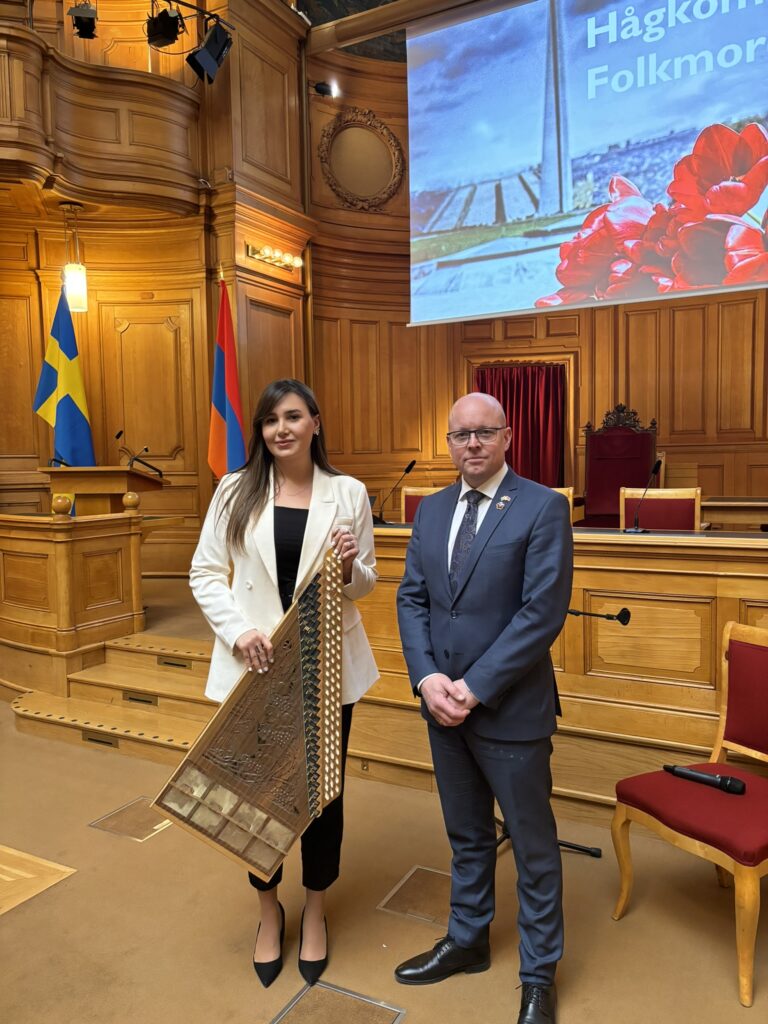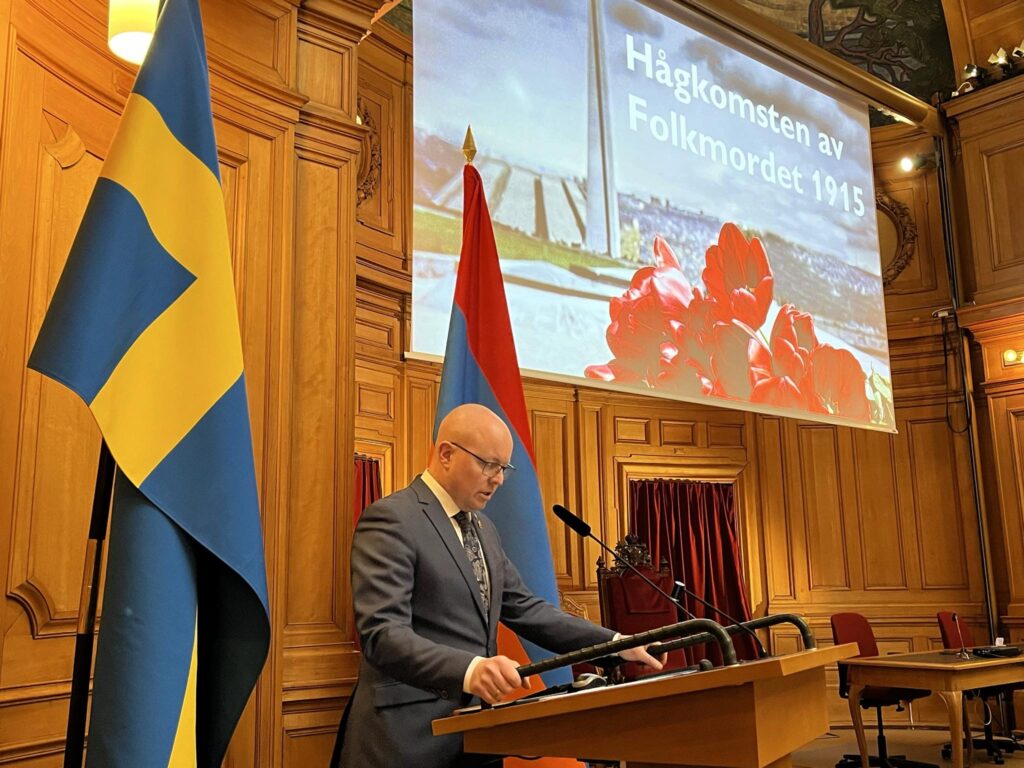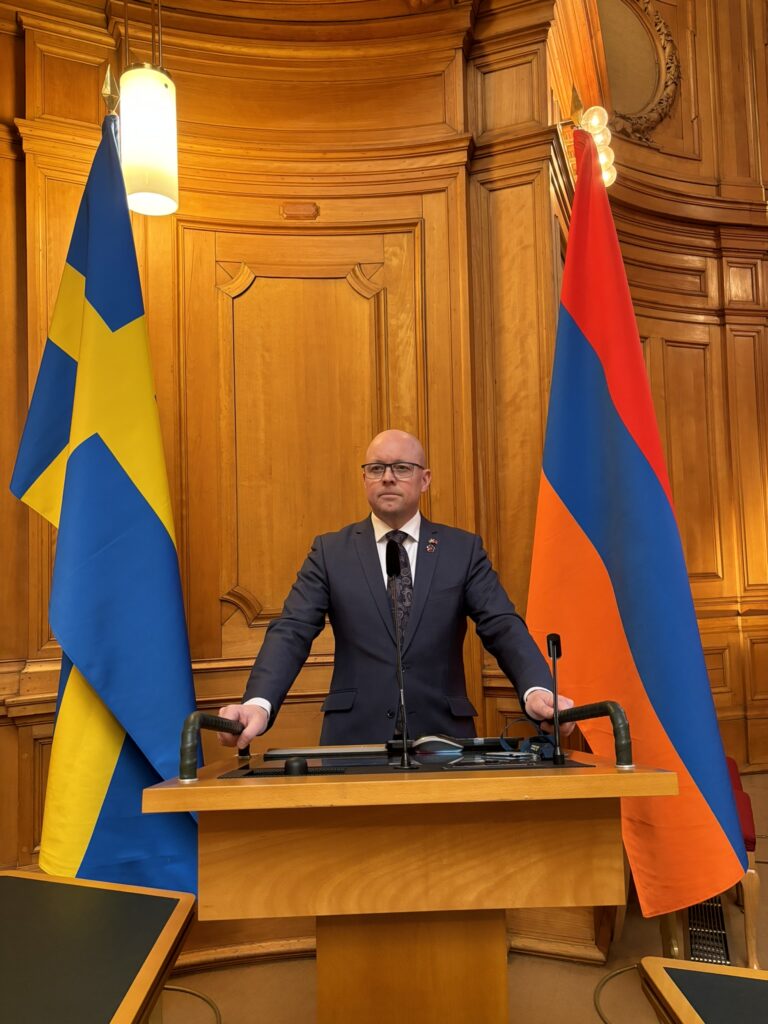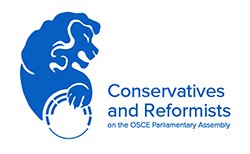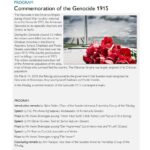 GENOCIDE Introductional remarks by Björn Söder at the Commemoration in the Swedish Parliament on April 24, 2024, of the Armenian Genocide.
GENOCIDE Introductional remarks by Björn Söder at the Commemoration in the Swedish Parliament on April 24, 2024, of the Armenian Genocide.
Members of parliament,
Your Excellency,
Dear ladies and gentlemen,
We have gathered here today in the Swedish Riksdag to commemorate the victims of the Armenian Genocide of 1915. It was a series of massacres and starvation of 1.5 million Armenians by the Ottomans. Also other Christian groups, such as Assyrians, Syrians, Chaldeans and Pontic Greeks, were killed during the Genocide.
On this day, 109 years ago, in 1915, the Ottoman authorities arrested and deported hundreds of Armenian intellectuals and leaders from Constantinople. At the orders of Talaat Pasha, an estimated 800,000 to 1.2 million Armenians were sent on death marches to the Syrian Desert in 1915 and 1916. Massacres and ethnic cleansing of Armenians and other Christian groups continued until 1923.
The victims constituted more than half of the Armenian population in the region. Most of the survivors fled the country. The Ottoman Empire was largely emptied of its Christian population.
The Genocide took place more or less in front of the open eyes of Europe’s great powers, but no one intervened despite numerous testimonies, including from the Swedish missionary Alma Johansson. Some time afterwards, of course, several perpetrators were convicted of their crimes, but many were also released, or were never even prosecuted. Christian groups were driven from their land and the perpetrators simultaneously tried to erase their history.
We have been able to see how the perpetrators’ methods have been inherited by extreme movements such as Nazis and Islamists. Before the invasion of Poland, Hitler is said to have expressed: ”Who today remembers the extermination of the Armenians?” The Islamic State’s terrible ravages have in recent years once again affected several of the ethnic groups that were subjected to the Genocide a hundred years ago in the Ottoman Empire.
In March 2010, the Riksdag announced to the government that Sweden should recognize the Genocide, that Sweden should work within the EU and the UN for international recognition of it, and that Sweden should work for Turkey to recognize it.
In November and December 2018 there was an exhibition here in the Riksdag about the Genocide. The focus of this exhibition was to also illustrate the Scandinavian response. We have many Scandinavian heroes to be proud of. Our very own Alma Johansson is one of those. She made significant efforts, both in saving lives and in testifying to what occurred during the Genocide.
Alma Johansson has also been honoured with a special place in the “Room of the good deed” here in the parliament and each year thousands of students pass through, enabling them during their education to learn more about the Genocide.
Today’s commemoration is a way of remember and reflect and honour the memory of the victims.
We shall always remember and we shall never forget.
Ladies and Gentlemen,
Today we will listen to the Armenian ambassador to Sweden, H.E. Mrs Anna Aghadjanian, Mr Göran Gunner, who is Theological doctor, Senior lecturer and Docent at University College Stockholm, the journalist and writer Mr Rasmus Canbäck, who has for several years been covering the conflict between Armenia and Azerbaijan. We will also listen to music by Ms Vanini Bilemdgian who will play a string instrument called Armenian Qanun.
Once again welcome! And I now leave the floor to the ambassador Mrs Anna Aghadjanian. Please, the floor is yours!
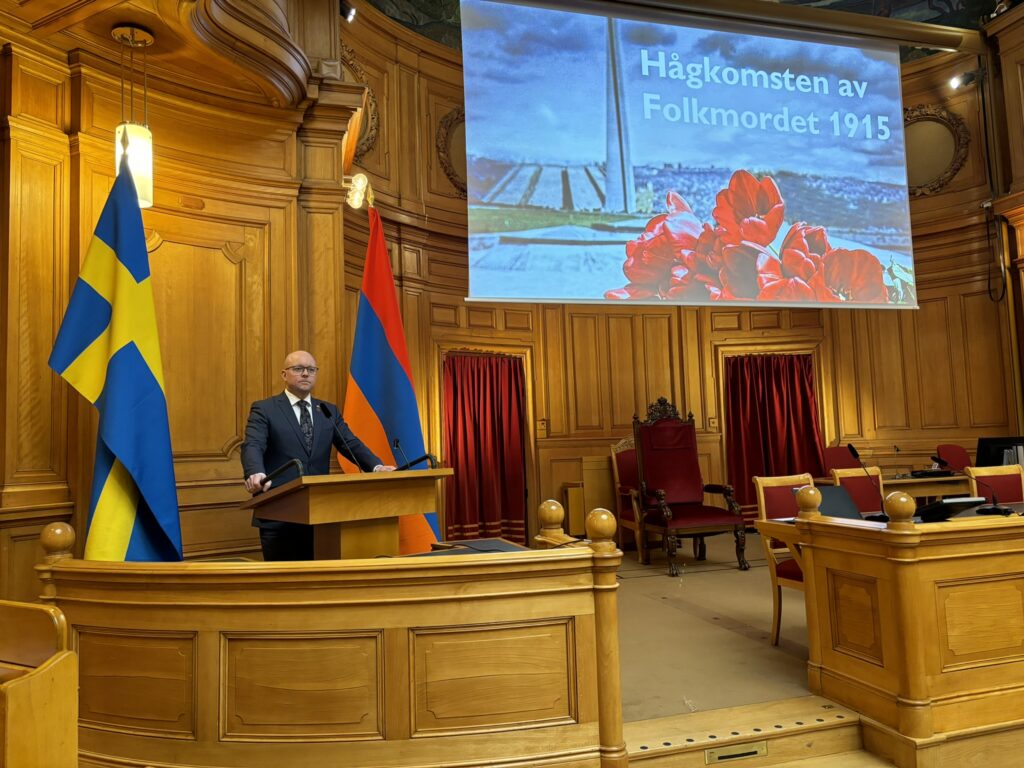
Björn Söder inledningstalade.
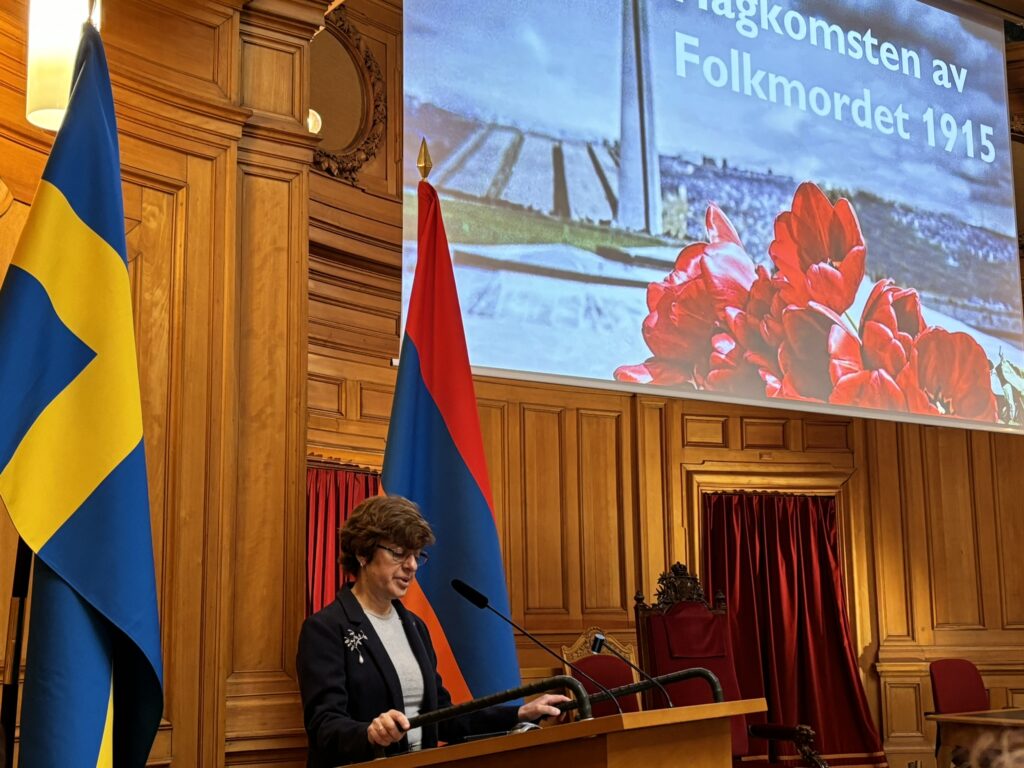
Armeniens ambassadör Anna Aghadjanian.
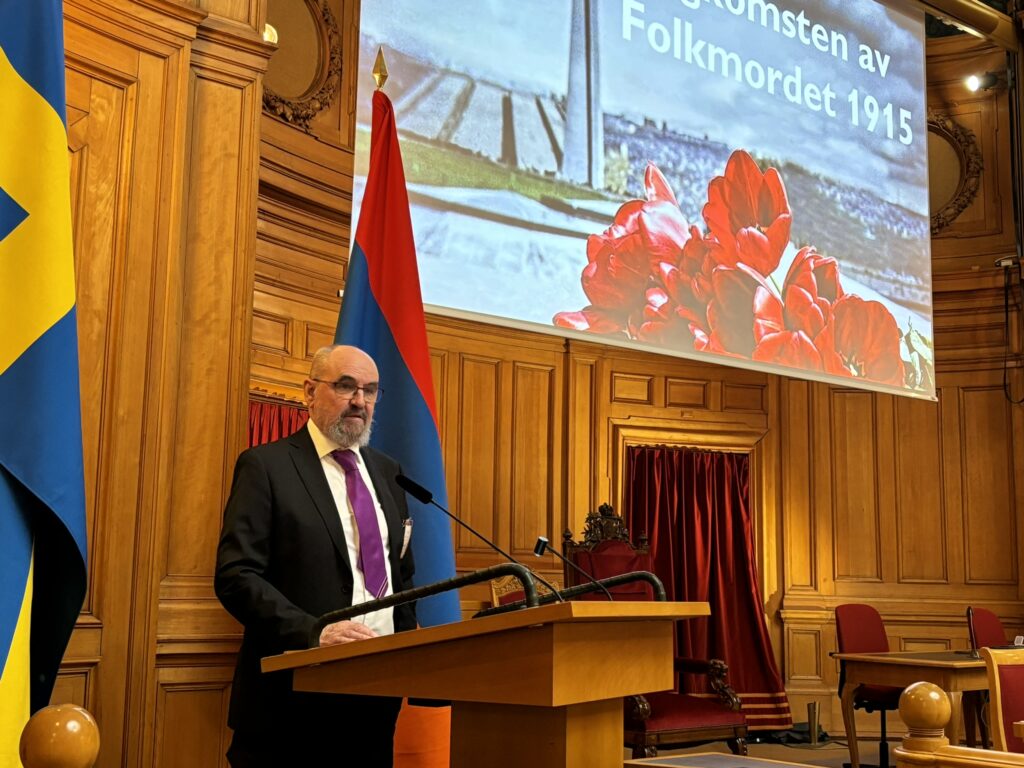
Göran Gunner, teol dr och docent i missionsvetenskap.
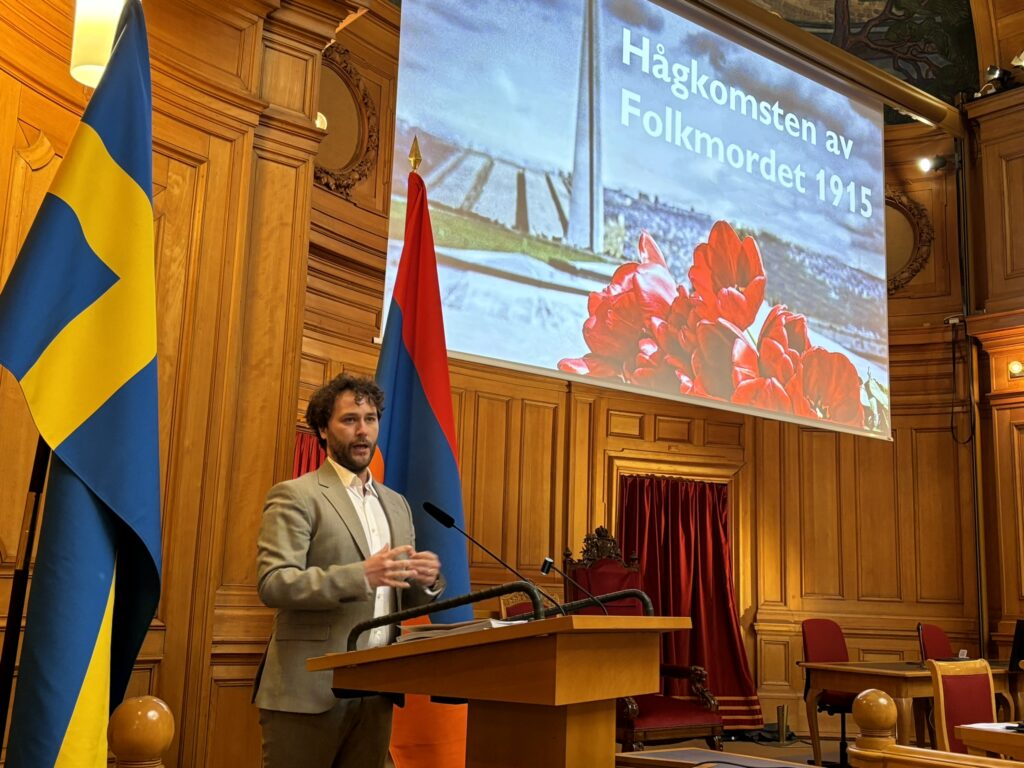
Rasmus Canbäck, journalist och författare.
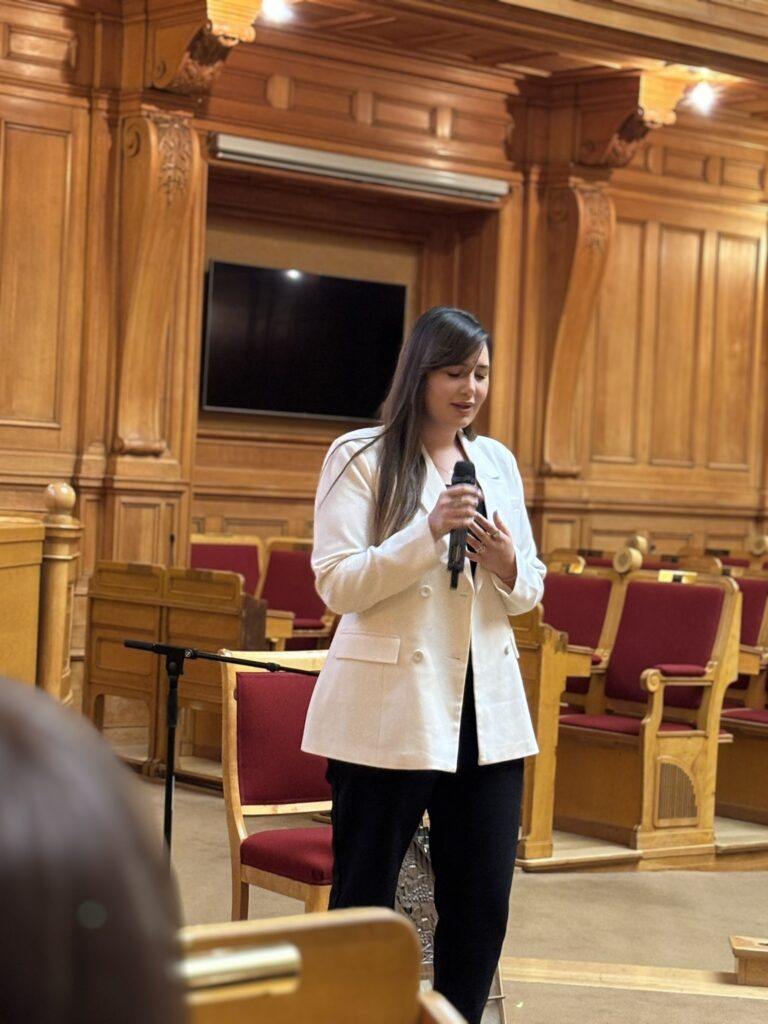
Vanini Bilemdgian sjöng och spelade på stränginstrumentet armenisk Qanun.
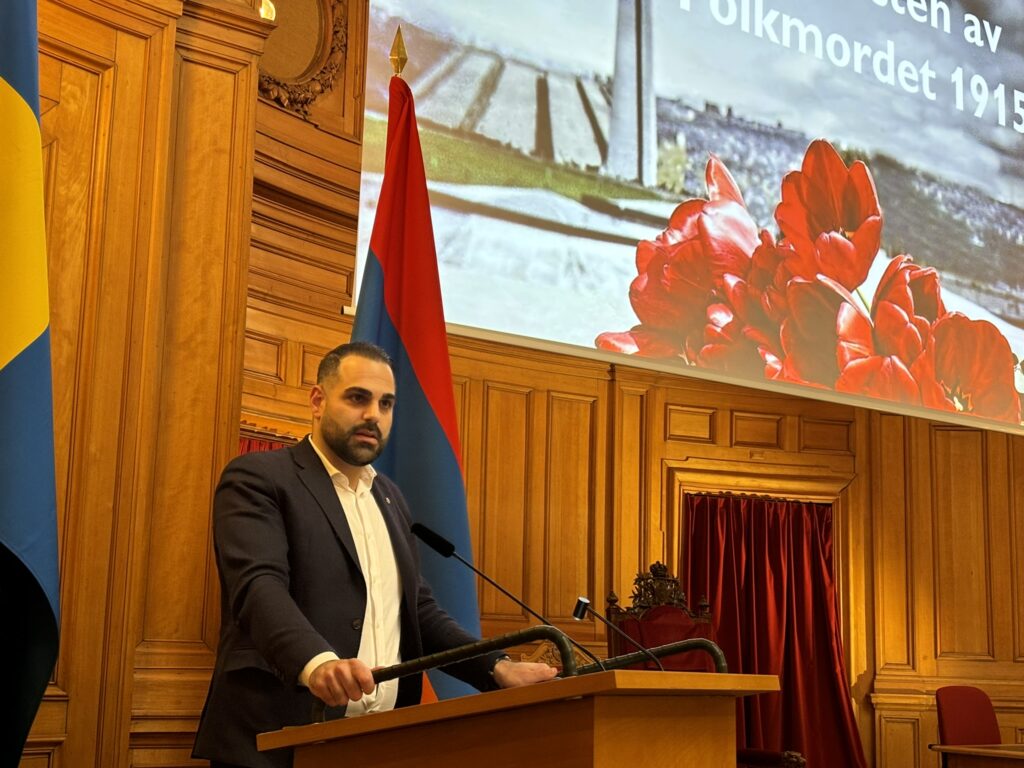
Arin Karapet avslutningstalade.
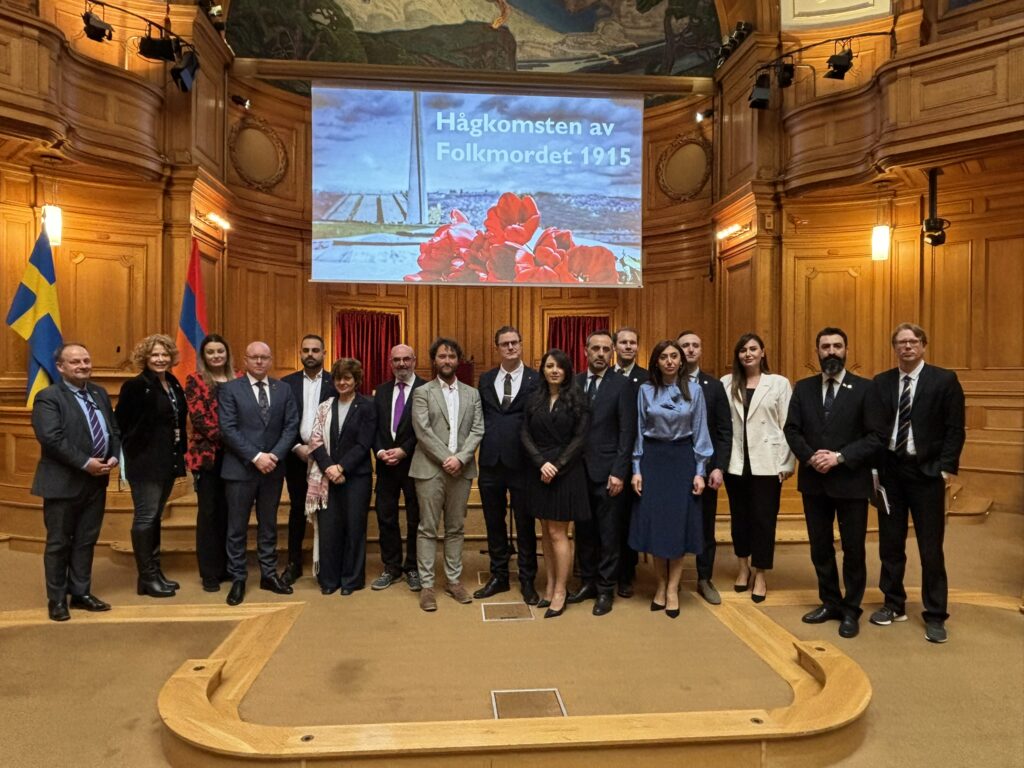
Vänskapsgruppen Sverige-Armenien i riksdagen tillsammans med ambassadören och de medverkande.
